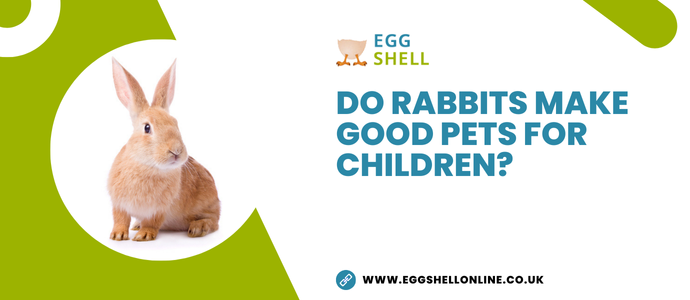At some stage, your child may become attached to the idea of having a particular pet. Perhaps they have seen them on their favourite TV show and want their own pet to love and take care of. Or perhaps their friend has recently brought a pet home and they want to enjoy the same experience.
Before deciding if a rabbit is right for your family, there are a few things to consider. There is a common misconception that rabbits have a similar life span to hamsters, but you need to be prepared to care for your pet for much longer than 2-3 years. Rabbits will live for around 8-12 years, so it is a long-term decision.
In this guide, we’re looking at some of the pros and cons of giving children a rabbit to take care of.
Reality check
The first thing to note about rabbits is that they like to chew. They have to gnaw to keep their teeth in good condition, and this means that anything in their path is fair game.
If they are allowed to roam outside of their hutch, you can expect them to chew on anything in their path. For indoor rabbits, this could mean important items like wires, furniture or possessions. The easiest way to manage this is to give them something suitable to chew on.
Another thing to consider is the level of care they require. You will need to clean their hutch once a day and carry out a deep clean once a week. Rabbits can live indoors or outdoors, but indoor rabbits will need more supervised play time. In the winter, outdoor rabbits will require extra attention to keep them warm.
And finally, while rabbits can be sociable, they aren’t always keen for cuddles. Your child will need to learn that their pet might sometimes want to be left alone. They aren’t afraid to nip to let their wishes be known. This can be difficult for children to handle if they feel like their pet doesn’t enjoy their attention.
The positives of keeping rabbits as pets
Once you and your child are happy with the reality of keeping a rabbit, there are some positives you can enjoy. While rabbits will need daily attention, it’s actually very easy to keep them happy.
This can be an excellent way to teach your child about responsibility. They will need to keep up their end of the bargain, by feeding their pet daily and helping out with the cleaning. Older children may be able to handle the cleaning entirely on their own.
It’s important for parents to oversee these processes to make sure they are actually happening. It would be cruel to the animal to let it suffer in a dirty cage just to teach a child a lesson about responsibility.
Rabbits are also beautiful creatures with lovely soft coats. One of the best ways a child can bond with their rabbit is through regular grooming. This is particularly important for long haired rabbits as regular grooming will help to avoid hairballs.
Rabbits are highly sociable animals, so it’s often a good idea to buy a pair so they won’t be lonely. Just be sure to get your rabbits from a reputable source who is confident of the sex or you could end up with a lot more rabbits than you expected.
If you’re considering a rabbit for your child’s first pet, make sure you invest in a quality hutch that is easy to maintain. This will help to simplify the weekly deep clean and ensure that your rabbit leads a long and healthy life.

